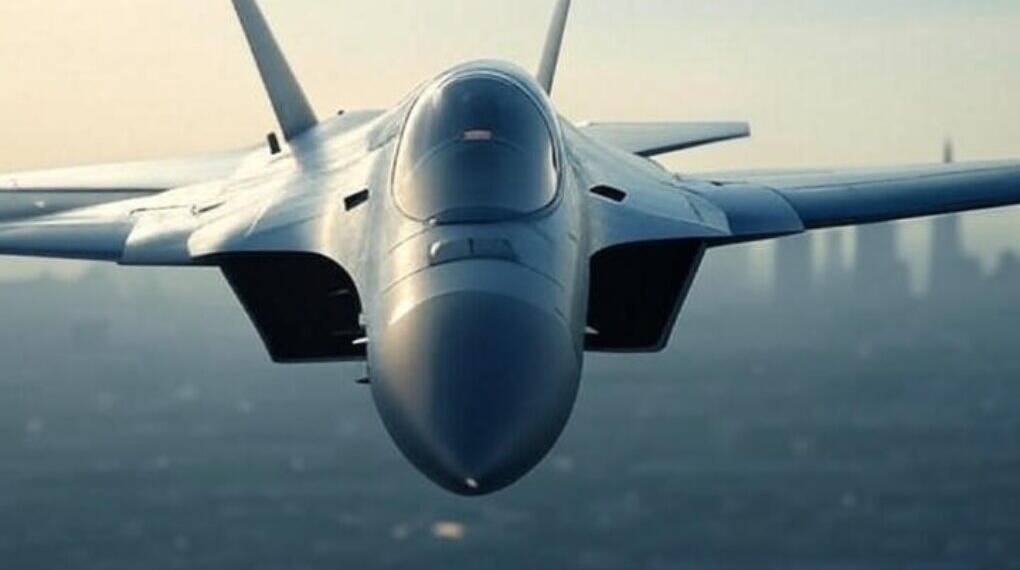The Future Combat Air System (FCAS), Europe’s ambitious sixth-generation fighter jet program, appears to be on increasingly shaky ground. In a move that has triggered diplomatic and industrial alarm bells, France has informed Germany of its desire to control 80% of the workshare in the collaborative French German-Spanish defense project.
The fallout from this demand could mirror historical precedents where France’s behavior ultimately led to its withdrawal from previous joint ventures — namely, the Panavia Tornado and Eurofighter Typhoon programs.
FCAS: A $116 Billion Vision in Turmoil
Initially hailed as a symbol of pan-European defense cooperation, FCAS was meant to revolutionize air combat by 2045 with a next-generation fighter (NGF), drone swarms, and advanced AI-driven systems.
However, the project — worth more than €100 billion ($116.85 billion) — is mired in bureaucratic delays, disagreements over intellectual property, and now a power struggle over who leads its development.
Dassault Aviation, France’s defense champion and lead on the fighter jet component, believes its extensive expertise qualifies it for a dominant role. According to reports from German defense publication Hartpunkt, Dassault wants 80% control over the fighter jet’s design and development.
This comes just before the pivotal Phase 2 of the program, which involves building and testing a demonstrator.
German Frustration and European Division
Germany and Spain have expressed increasing frustration at France’s unilateral ambitions. German lawmaker Christoph Schmid warned that conceding to France’s demand could be the “last nail in the coffin” for FCAS. This tension exposes deep-seated mistrust in Europe’s defense industrial ecosystem, especially regarding workshare equity and export controls.
Interestingly, French media outlets such as Meta Defense and OpexNews have sided with Dassault. They argue that, unlike Germany and Spain, which can rely on stopgap aircraft like the Eurofighter Typhoon or the F-35, France faces an urgent replacement timeline for its Rafale fleet, due to retire between 2040 and 2045. Therefore, any delay could jeopardize French air superiority.
Déjà Vu: France’s History of Exiting Joint Fighter Programs
France’s demand isn’t without precedent. Twice before, Paris has pulled out of European fighter projects over similar disagreements.
1. Panavia Tornado (AFVG Program)
In the 1960s, the UK and France jointly launched the Anglo-French Variable Geometry (AFVG) program, aiming to develop a swing-wing multirole fighter. But in 1967, France abruptly withdrew, citing diverging strategic priorities. The UK went on to partner with Germany and Italy, leading to the successful Panavia Tornado, while France independently developed the Mirage G prototype.
2. Eurofighter Typhoon
In the 1980s, France was offered a seat at the table for the Eurofighter Typhoon project. However, disagreements over maritime capabilities, design goals, and workshare distribution led France to demand an outsized 46% share — a nonstarter for the UK, Germany, Italy, and Spain. France again walked away, choosing instead to go solo with the Rafale, a decision that has arguably paid off handsomely in hindsight.
Rafale’s Success Justifies French Solo Strategy
Though initially struggling to secure export orders, the Rafale has witnessed a boom in recent years, winning contracts from Egypt (54 jets), Serbia (12 jets), and the UAE (80 jets). A key advantage? Freedom from German export restrictions. Unlike the Eurofighter, which requires consensus from all partner nations for exports, the Rafale is a fully sovereign French product.
Germany’s strict arms export controls have delayed or blocked sales of the Typhoon, Airbus helicopters, and refueling tankers to countries like Saudi Arabia. This rigidity is a sore point for France, which values its strategic autonomy — a principle deeply embedded in its defense doctrine.
Industrial Rivalry or Strategic Realism?
From a French perspective, Dassault’s dominance is practical, not political. The company has a proven track record of designing fighters without outside collaboration, and the urgency to replace the Rafale compels France to minimize delays.
French defense commentators argue that FCAS should follow the nEUROn drone program model, where task delegation was based on technical expertise, not nationality. That program, led by France with clear leadership and deliverables, produced tangible results.
In contrast, FCAS lacks a clear structure and timeline. As OpexNews put it, there is “no clear leader and no stable schedule” — a recipe for friction, not success.
Will France Walk Again?
Given the similarities to past programs, many defense analysts now wonder: Will France quit FCAS and build its own sixth-gen fighter? The answer increasingly looks like yes. Dassault has the capability, political backing, and now the justification — if the other partners won’t concede leadership.
While a French exit would hurt European defense unity, it might be strategically inevitable. France’s solo pursuit of the Rafale allowed it to dominate key export markets and maintain full sovereignty over its defense systems. With that precedent, Paris might believe that history — and profit — is once again on its side.
FCAS at a Crossroads
The year 2025 may be the tipping point for FCAS. Either the partners fundamentally restructure the program — giving Dassault more control while keeping Germany and Spain meaningfully involved — or the project risks implosion.
As with the Tornado and Eurofighter before it, France’s insistence on control could force a redefinition — or a breakup — of the consortium. If that happens, Europe’s vision of joint airpower for the 2040s could end up as another cautionary tale of political ambition outpacing practical collaboration.








